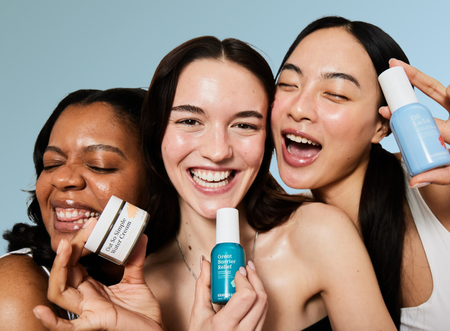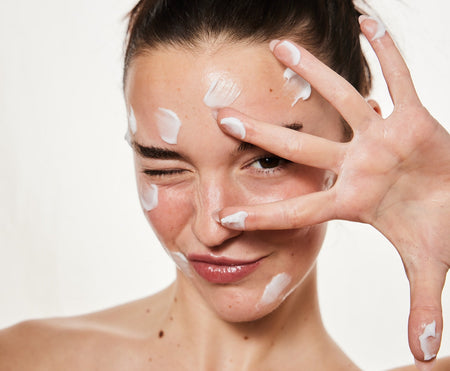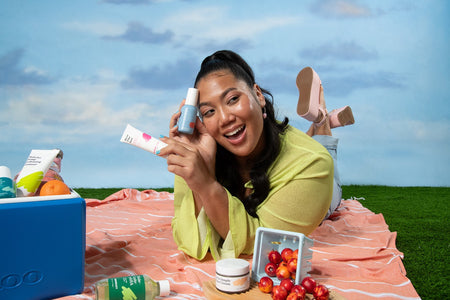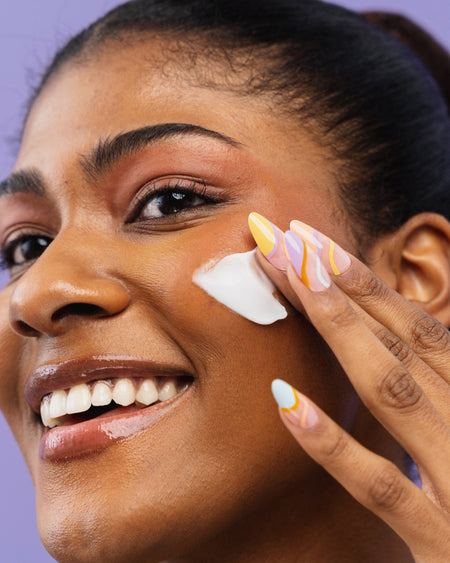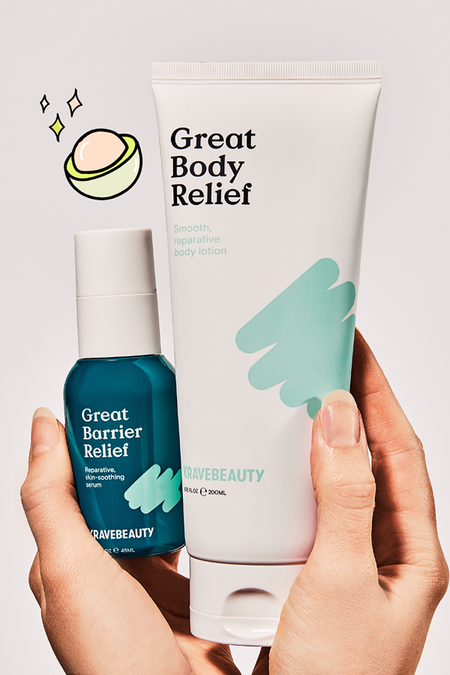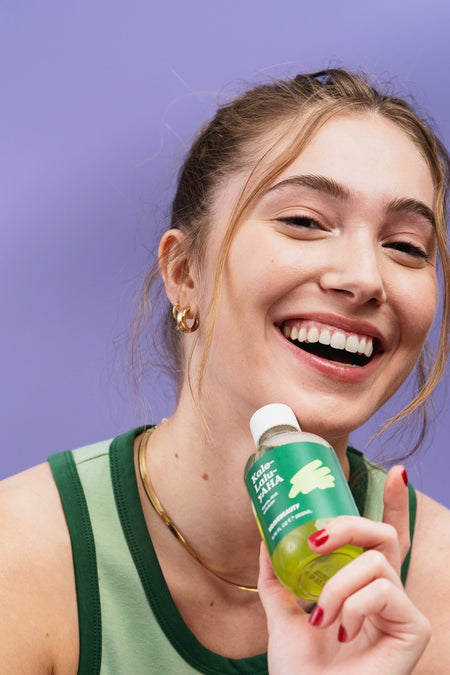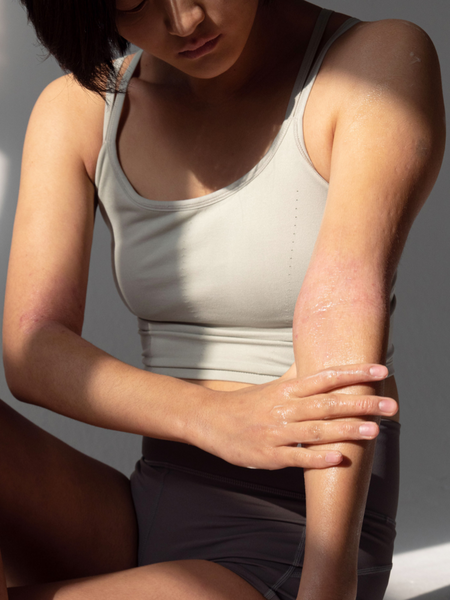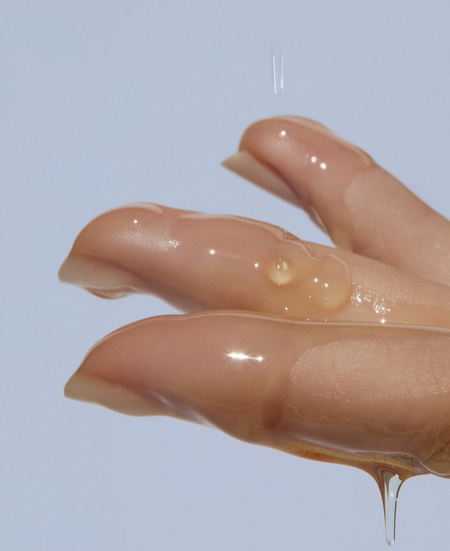Ingredient Series: Vitamin C

We were going to write up a post about Vitamin C but we couldn’t have written it better than our friends from INCI Decoder. So please, enjoy!
If Vitamin C was a person, it would definitely be the Ariana Grande, Jennifer Lopez or Mariah Carey of the vitamin world. An A-list superstar who gives a killer performance, but at the same time exhibits some major diva-like behavior.
So what makes Vitamin C the superstar diva it is? Let’s find out.
A little back story
Before we dive into what Vitamin C exactly is, it’s time for a quick history lesson on how it found its big break. By the 18th century, sailors noticed that eating plenty of citrus fruits while out at sea helped prevent scurvy (an ugly disease that causes bleeding gums and other nasty symptoms caused by Vitamin C deficiency). At that time, they had no clue what it was inside citrus fruits that helped, and it took until the 1930s for scientists to pinpoint Vitamin C as the hero.
Since then, Vitamin C’s been a much researched and beloved vitamin that has turned out to have tremendous health benefits not only for our body but also for our skin. Specifically, it’s the primary water-soluble antioxidant in our tissue and plays a big role in helping our skin create new skin-firming collagen.
But this A-lister isn’t just going to show up without some love calls, because our bodies actually can’t produce Vitamin C for itself (fun fact: some animals, like mice can though!). So we’re going to need to put in the work by getting it entirely from outside sources. While consuming Vitamin C-rich foods such as citrus fruits, black currants, red pepper, and guava can do the trick for providing the vitamin for our bodies, just eating Vitamin C doesn’t increase our skin’s Vitamin C levels much at all. And just when we thought it couldn’t get any more complicated, our skin’s Vitamin C levels are easily depleted when we face sun exposure or environmental pollution. What the heck, right.
At least there’s the light at the end of the tunnel: applying Vitamin C cream or serum to our skin does work. (Phew, thank goodness 😌)
Here are some of its star skincare qualities:
-
Great antioxidant and UV protection booster
Multiple studies have shown that animal skin treated with topical Vitamin C, also called ascorbic acid, have less skin reddening (AKA erythema), fewer sunburn cells, and decreased tumor formation after UV exposure.
What this means for us is that it’s a great idea to use your Vitamin C serum in the morning under your sunscreen (not instead of it!). For even better protection, choose a serum that also contains Vitamin E to double the photo-protection properties of Vitamin C. And if you’re really looking to pack a Vitamin C punch to your routine, look for serums that also contain Ferulic Acid as it doubles the photo-protection of the Vitamin C + E duo.
So here’s the math laid out:
Vitamin C = Awesome
Vitamin C + E = 2x the Awesome
Vitamin C + E + Ferulic Acid = 2x(2x the Awesome)= 4x the Awesome (!!!)
Boy, is the Vitamin C + E + Ferulic acid trio super effective or what. If you’re into protecting your skin from UV rays (and you should be if you want lovely skin for the long term), definitely try a serum containing the magic trio.
-
Helps skin produce collagen
Collagen is kinda complicated to understand, but the most important thing to know about it is that it’s like a tent pole that helps to keep our skin firm and wrinkle-free. Now, randomly throwing poles onto a ramshackle tent obviously isn’t going to help, and the poles won't magically go to the right place to make our tent nice and firm like we want it to be. It’s the same with collagen– just slathering on skincare products containing collagen doesn’t really help (to be fair, they have some hydrating properties, but not magic wrinkle-erasing properties).
That’s why we need to take an alternative approach to prevent further signs of skin aging– by boosting the collagen production of our skin. And what do you know, Vitamin C can help us out with that! In a study from 1999, a 10% Vitamin C serum (called Cellex-C) was shown to decrease the appearance of wrinkles when applied for a three month period. Another study a few years later using a 5% Vitamin C cream for a six month period showed statistically significant improvement in skin hydration, wrinkles, glare, brown spots and skin density. If that wasn’t convincing enough, Vitamin C is one of the very very few ingredients that is proven in peer reviewed studies to boost our skin’s collagen production process.
We love an effective collagen-producing queen 👑.
-
Fades brown spots
Let’s be honest– brown spots and hyperpigmentation totally suck, and they’re pretty difficult to fade with just skincare. Fortunately, Vitamin C is good for those stubborn spots too.
For brown spots to form, the body needs an enzyme (stuff that facilitates chemical reactions in our body) called tyrosinase. Vitamin C stops tyrosinase in its tracks so that brown spots cannot form that effectively in the first place. Our hero ❤️.
Now all we’ve done so far has been to rave about Vitamin C’s superstar performance, but we also mentioned how much of a diva Vitamin C can actually be too.
Here’s the gossip on some of its major diva demands:
-
Extremely unstable and oxidizes very easily
If you’ve ever tried using a pure Vitamin C serum and didn’t finish it up within in a month or two, then you must have noticed a brownish color change in the formula. That, my friend, is Vitamin C oxidizing in the product and thus losing its effectiveness.
There are some tips and tricks that skincare developers take to help stabilize Vitamin C in their products. Products with a low pH (below 3.5pH) or waterless formulation tend to last longer. Also, adding in some other ingredients like Ferulic Acid, Glutathione, Citric Acid or Sodium Metabisulfite can help to fend off Vitamin C’s tantrums too. It’s also super important to protect the formula from air and light to prevent further oxidization, so totally airless packaging is the best when it comes to Vitamin C formulas.
But even when all of this extra attention and pampering is given, a potent Vitamin C serum still can be used usually only three months after opening them. Diva, see?
-
Does not penetrate skin easily
As our skin tends to be more attracted to oil-soluble things, our skin just isn’t that into the water-soluble Vitamin C. So this makes it a little tricky for Vitamin C to actually get absorbed into our skin. But good news: low pH (below 3.5pH) solves this problem, so look out for water-based Vitamin C serums that boast the right pH or other waterless formulas.
-
High amount of Vitamin C can irritate sensitive skin
Feeling a slight tingling sensation when using Vitamin C is pretty normal, but if your skin is super sensitive or rosacea-prone, a very potent (above 10%) Vitamin C serum might not be a good match for your skin. Still, Vitamin C is such an awesome ingredient that we recommend you at least give a product with a lower amount of Vitamin C a try and see how your skin reacts. Everyone’s skin reacts differently to different ingredients, so who knows? Vitamin C could be the one your skin was waiting for.
We hope you enjoyed getting to know more about the antics of our resident superstar diva, Vitamin C. Though a bit difficult at times, we have to admit that it’s amazing at what it does. Tune in next week for another exciting installment in our Ingredient Series: Skin Brightening Ingredients!


